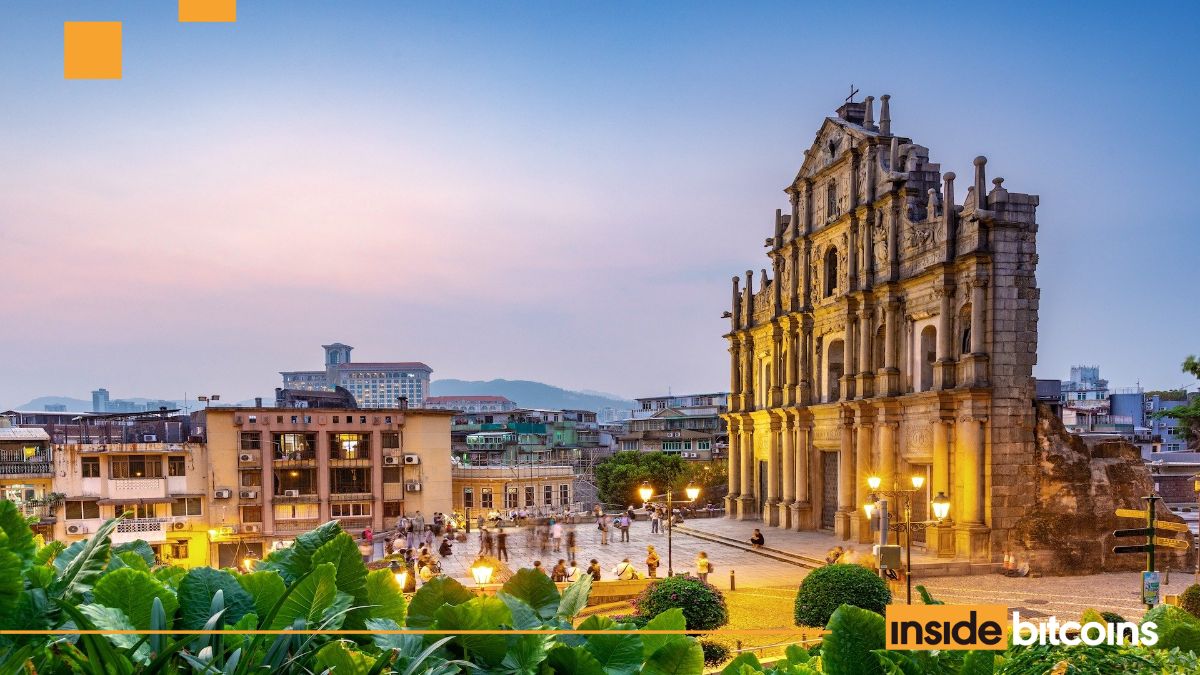The gaming world was caught off guard when Macau’s government announced that all eleven remaining satellite casinos would shut their doors by December 31, 2025. What CLSA analysts described as a “negative surprise” represents the final chapter in a regulatory transformation that began with the 2022 amendments to Macau’s gaming law. The three major concessionaires—SJM Holdings, Melco Resorts, and Galaxy Entertainment—delivered the news that they would cease operations at these venues, marking the end of a business model that had thrived for decades.
This wasn’t just a minor adjustment to the gaming landscape. The satellite casino model had been a cornerstone of Macau’s gaming ecosystem, with these properties operating under revenue-sharing agreements that allowed third-party property owners to partner with licensed concessionaires. Under the traditional arrangement, revenues were typically split using the 40:40:20 formula—40% to the Macau government as tax, 40% to the property owner, and 20% to the concessionaire like SJM.
Understanding the Revenue-Sharing Model That’s Being Eliminated
The revenue-sharing system that Macau is now outlawing was pioneered by Stanley Ho’s Sociedade de Jogos de Macau (SJM) and reflected the Chinese cultural preference for building relationships and achieving “group identity”. This model allowed property owners to earn substantial returns without needing a gaming license, while concessionaires could expand their footprint without massive capital investments in real estate.
The elimination of this model represents a fundamental shift toward direct ownership requirements. Starting in 2026, the revised gaming law mandates that all casino operations must either be directly owned by concessionaires or operate under non-revenue-sharing management agreements where operators receive only fixed fees for their services. This change effectively kills the profit-sharing arrangements that made satellite casinos financially attractive to both property owners and operators.
Economic Devastation: The Numbers Behind the Closures
The economic implications of these closures extend far beyond the gaming floors. Satellite casinos generated over MOP11 billion in gaming revenue in the past year, contributing approximately MOP4 billion in taxes to Macau’s government coffers. More critically, these operations directly supported 13,500 jobs across the territory. With the closures, around 5,600 local workers will need to be reallocated across the concessionaires’ remaining portfolios.
The property market faces perhaps the most severe consequences. Franco Liu, a Macau-based property valuation expert, warns that some hotel properties tied to satellite casinos could lose more than 60 percent of their value. Properties that secured larger loans based on inflated valuations from having gaming operations on-site now face the prospect of loan-to-value ratios skyrocketing to as high as 150 percent. This creates a dangerous scenario where property defaults could strain Macau’s financial system.
Paradise Entertainment exemplifies the corporate casualties of this transition. The company operates Casino Kam Pek Paradise under SJM’s umbrella and was notified that its service agreement would not be renewed beyond December 2025. The company expects a “material reduction in reported revenue and profit” afterward. As CLSA analyst Jeffrey Kiang noted, this represents “a structural shift that removes a critical revenue source for Paradise, leaving its future strategy uncertain”.
Macau’s Tourism Recovery and Visitor Statistics
Despite the satellite casino upheaval, Macau’s tourism sector has shown remarkable resilience. In 2024, the territory welcomed just under 34.93 million visitors, representing a 23.8 percent increase year-on-year and reaching 88.6 percent of pre-pandemic 2019 levels. Mainland Chinese visitors dominated, accounting for 70.1 percent of all arrivals—approximately 24.49 million people—a 28.6 percent year-on-year gain.
The visitor composition reveals interesting trends. Overnight visitors totaled just above 16.04 million in 2024, representing 45.9 percent of overall arrivals, while same-day visitors surged 35.0 percent to about 18.88 million. This shift toward same-day visits has shortened the average length of stay to 1.2 days, down 0.1 day from the previous year. For 2025, April alone saw 3.09 million visitor arrivals, up 18.9 percent year-on-year, with mainland Chinese visitors increasing by 22.4 percent to 2.13 million.
Macau’s tourism revenue performance has been equally impressive. According to the United Nations World Tourism Organization, Macau secured 13th position globally in tourism revenue generation, with an extraordinary growth rate of 275 percent in 2023 compared to the previous year. The territory’s tourism revenue reached a staggering USD32.6 billion, outperforming countries like India and Mexico.
Regional Competition: The Growing Threat to Macau’s Dominance
While Macau maintains its position as Asia’s gaming capital, regional competition is intensifying. Singapore’s two integrated resorts—Marina Bay Sands and Resorts World Sentosa—continue to challenge Macau’s supremacy, particularly in attracting high-roller VIP customers. The Philippines has also emerged as a significant competitor with its Entertainment City development in Manila, featuring multiple integrated resort complexes.
Mary Mendoza, a specialist in integrated resort strategy at The Platinum Ltd, emphasizes that while regional competition is growing, Macau’s position remains distinct due to its unique visitor demographics. Over 80 percent of Macau’s gaming income comes from Southern China patrons, supplemented by strong flows from Shanghai and Northern China—a customer base that demonstrates both volume and high betting engagement.
The competitive landscape is set to become even more challenging. Japan’s casino sector is advancing with MGM confirming its commitment to launch a casino resort by 2030. Meanwhile, Thailand’s casino legalization efforts are gaining momentum, with industry experts suggesting that Thai integrated resorts could open as early as 2029.
Macau Chief Executive Sam Hou Fai has acknowledged these mounting challenges, warning that the territory “cannot remain unscathed” as competition in tourism and gaming from neighboring cities intensifies. He has called for continued efforts to diversify Macau’s economy beyond its heavy reliance on gaming, recognizing the “structural problem of ‘one industry dominates'”.
Technology Trends Reshaping the Casino Experience
The casino industry worldwide is undergoing a technological revolution that’s affecting visitor behavior and expectations. Artificial Intelligence has become increasingly prevalent in casino operations, with AI-powered chatbots providing round-the-clock customer support and personalized game recommendations based on user behavior. AI algorithms also help detect fraudulent activities by analyzing player behavior and betting patterns.
Virtual Reality and Augmented Reality technologies are transforming the gaming experience, creating immersive environments that can transport users to entirely virtual casino settings. These technologies allow players to enjoy casino experiences from home, potentially affecting foot traffic to physical casino locations. Blockchain technology and cryptocurrencies are also gaining traction, offering transparent, secure, and anonymous transactions that appeal to privacy-conscious players.
The rise of online social casinos, some of which accept cryptocurrency deposits, represents another significant trend, blending gambling excitement with social connectivity. These platforms create new opportunities for player engagement that traditional brick-and-mortar casinos must compete against. For Macau’s satellite casinos, which often lacked the resources to invest in cutting-edge technology, this digital transformation presents yet another challenge in an already difficult operating environment.
Revenue-Sharing Models in Other Jurisdictions
Macau’s decision to eliminate revenue-sharing models puts it at odds with practices in other gaming jurisdictions. In the United States, several states have implemented casino revenue-sharing arrangements with local communities. For example, in Niagara Falls, New York, the Seneca Niagara Resort & Casino operates under a revenue-sharing agreement where 25 percent of revenues go to the state, and a portion of that flows to the local tourism corporation.
California has perhaps the most innovative revenue-sharing model among tribal gaming operations. Under the state’s tribal-state gaming compact, tribes with 350 or more slot machines pay quarterly licensing fees that are distributed equally among the state’s 78 federally recognized tribes that either have no casinos or operate fewer than 350 slots. This system ensures that gaming wealth circulates throughout Indian country, not just to tribes with successful casino operations.
These models demonstrate that revenue-sharing can work effectively when properly structured and regulated. However, Macau’s unique market dynamics and the government’s desire for greater control over the gaming sector have led to a different approach that prioritizes direct ownership and management fee arrangements over profit-sharing partnerships.
Thailand’s Casino Development: A Different Approach
Thailand’s approach to casino development presents a stark contrast to Macau’s restrictive new model. The Thai government has approved the Entertainment Complex Bill, which would legalize casino gambling within large-scale integrated resorts similar to those in Singapore. However, Thailand’s regulatory framework is being designed with strict limitations on local participation while maintaining revenue-generating opportunities for operators.
The proposed Thai legislation requires casino operators to have registered capital of at least 10 billion baht and be at least 51 percent Thai-owned. Licenses would be valid for 30 years with renewal options every 10 years. Importantly, casino permit fees are set at 5 billion baht with annual renewal fees of 1 billion baht. For Thai nationals, entry would require a 5,000 baht fee and maintaining a minimum fixed deposit of 50 million baht.
Galaxy Resorts’ Kevin Clayton has proposed that gaming areas within Thailand’s Entertainment Complexes should be limited to just 5 percent of total floor space, arguing that even with such a small footprint, casinos could generate up to 80 percent of revenue to subsidize hotels, restaurants, and other non-gaming attractions. This model differs significantly from Macau’s approach and could provide a more sustainable framework for integrated resort development.
Thailand’s casino legislation is expected to be enacted within the first quarter of 2026, with the first casino-entertainment complex potentially completed within three to four years after construction begins. CLSA analysts suggest that Thailand’s nascent gaming sector could unlock a substantial $15.1 billion market, though they believe this “will not significantly cannibalize Macau’s tourism market” due to vast differences in visitor profiles and length of stay.
The Broader Impact on Macau’s Gaming Ecosystem
The elimination of satellite casinos represents more than just a regulatory change—it’s a fundamental restructuring of Macau’s gaming ecosystem. SJM Holdings, which operated nine of the eleven satellite casinos, has announced plans to acquire the properties housing Casino L’Arc Macau and Casino Ponte 16, believing these locations align with the group’s long-term strategic objectives. The other seven SJM-affiliated satellite casinos, including Casa Real and Emperor Palace, will not have their agreements renewed.
This consolidation could actually benefit the remaining concessionaires by improving table yields and allowing them to better control their gaming operations. Melco Resorts has similarly announced plans to exit satellite casino operations while maintaining three Mocha Clubs beyond 2025, subject to government approval. The company’s withdrawal from satellite operations marks the beginning of a more centralized model with tighter ownership controls taking effect in 2026.
The transition also affects gaming equipment suppliers and service providers throughout Macau’s gaming supply chain. Companies that specialized in serving satellite casinos must now adapt their business models or risk losing significant revenue streams. This ripple effect extends beyond gaming to encompass hospitality, entertainment, and retail sectors that relied on satellite casino foot traffic.
Despite government assurances that the closures won’t significantly impact gross gaming revenue, the loss of 11 gaming venues inevitably reduces the total gaming capacity available in Macau. This contraction comes at a time when visitor numbers are recovering strongly, potentially creating capacity constraints that could benefit the remaining larger integrated resorts while disadvantaging visitors seeking more intimate gaming experiences.
The regulatory changes also signal Macau’s broader evolution from a freewheeling gaming destination to a more tightly controlled and government-supervised market. This transformation reflects Beijing’s desire for greater oversight of the territory’s gaming sector while maintaining Macau’s role as the only legal gaming destination for mainland Chinese residents. The end of satellite casinos thus represents not just an economic shift but a political and regulatory realignment that will shape Macau’s gaming industry for decades to come.
Related Pages
- National Holidays Propel Macau to Post-Pandemic Gaming Revenue High in May 2025
- Macau’s Record Gaming Revenues, Changing Visitor Demographics, and Expanding Potential Beyond Vegas
- Contrasting Fortunes: Macau’s Gaming Growth vs. Las Vegas’s Decline
- Macau’s Gaming Sector Faces Early 2025 Hurdles Amid Hopes for Growth


